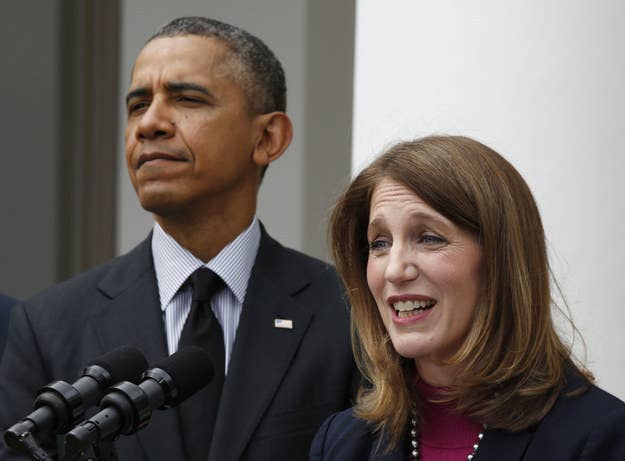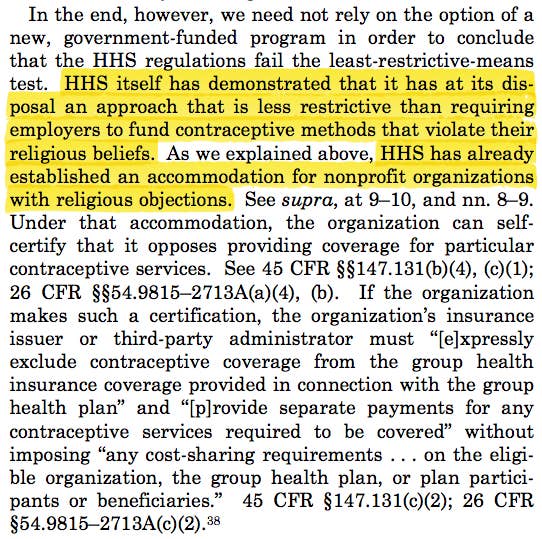
WASHINGTON — On Monday, the Supreme Court exempted for-profit corporations with religious objections from the Affordable Care Act's contraception mandate — but Justice Samuel Alito also laid out a path forward for the Obama administration to ensure coverage for employees of those companies, a path the White House press secretary suggested Monday afternoon that it could take.
White House press secretary Joshua Earnest said at Monday's briefing that the decision "jeopardizes the health of women" and focused, initially, on "pressing Congress to actually take the step that's required to address this problem." When pressed, though, he acknowledged, "We'll consider whether or not there's an opportunity for the president to take some other action that could mitigate this problem as well."
In the ruling that Hobby Lobby could be exempted under the Religious Freedom Restoration Act (RFRA) from the coverage requirement, a key question was whether the administration could have done something less restrictive to guarantee cost-free contraception in health plans. Once the court determined that Hobby Lobby could seek exemptions from laws under RFRA, the court ruled the administration could have done something less restrictive, pointing to the administration's accommodation for nonprofits.
Because of the existence of that accommodation, the court held that Health and Human Services "itself has demonstrated that it has at its disposal an approach that is less restrictive than requiring employers to fund contraceptive methods that violate their religious beliefs." Alito then wrote for the court that such an accommodation, if extended to for-profit corporations, could be possible as it "does not impinge on the plaintiffs' religious belief that providing insurance coverage for the contraceptives at issue here violates their religion."
Congressional action — most likely involving reversing the first part of the court's opinion, in which the court held that closely held corporations could seek the protections for religious exemptions provided by RFRA — is unlikely to go anywhere in the current House.
The more likely option would be administrative action to "mitigate" the effect of the court's decision. The action would likely be a further regulation from HHS to extend the administration's accommodation for nonprofits under the contraception mandate to be also made available to for-profit corporations.
Although the court did not specifically rule Monday on whether that option could itself be subject to RFRA exemptions, a point raised by Justice Ruth Bader Ginsburg in her dissent, it was clearly put forth by Alito as a potential option.
Such an action, thus, would not be an attempt to reverse the Supreme Court's ruling. The move would be taking the precise action that Alito suggested is available to the administration as a less restrictive means for accomplishing its goals in implementing the contraception mandate.
While the political debate over corporate rights likely will be inflamed by Monday's ruling, the specific outcome of the case itself likely could be addressed by a quick fix in short order.
From the Supreme Court's Hobby Lobby opinion:

